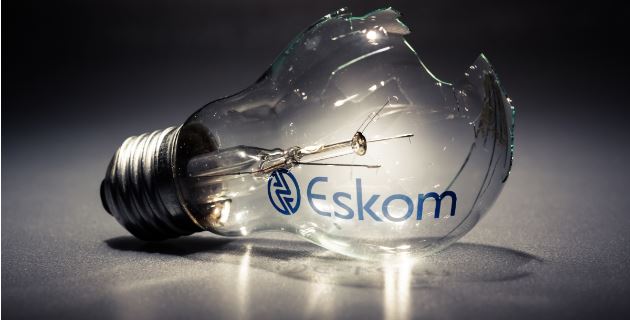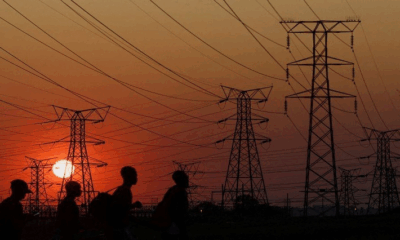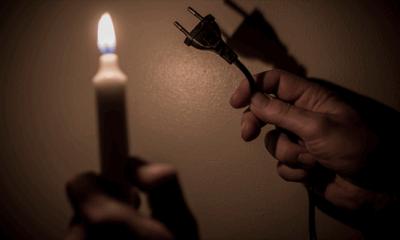Business
Navigating South Africa’s Energy Transition: Why Eskom’s Dual Role Could Spark the Next Electricity Crisis

The promise of change meets old obstacles
South Africa’s much-talked-about energy transition is supposed to unlock a future of cleaner, more reliable power. Yet, the path forward is anything but clear. Ageing coal stations are limping along, the national grid is stretched thin, and policy direction often seems more contested than coordinated.
At the heart of the tension sits Eskom, the state-owned giant that is both a gatekeeper to the grid and, increasingly, a competitor in renewable power generation. This dual role is raising red flags across the energy industry, with many warning it could create South Africa’s next electricity disaster.
Eskom’s double hat: player and referee
On the one hand, Eskom controls who gets access to the grid. On the other, it has announced plans to market electricity from its own future renewable facilities while negotiating long-term supply deals with customers.
That overlap raises a fundamental question: Can Eskom fairly decide which independent power producers (IPPs) connect to the grid while also competing against them? Critics argue the potential for discrimination is too great to ignore, and the result is growing mistrust.
The Interim Grid Capacity Allocation Rules (IGCAR), introduced by Eskom to manage scarce grid space, have been slammed for slowing down projects instead of streamlining them. Meanwhile, the regulator is scrambling to draft new rules to bring clarity and fairness.
A sector caught in tug-of-war
The turbulence doesn’t end there. Eskom is still pushing back against the unbundling of the National Transmission Company of South Africa (NTCSA), a key reform meant to bring independence and transparency to transmission planning. It’s also challenging the issuing of trading licences to independent players, another move that could inject competition into the market.
The result? Delays, uncertainty, and a lack of investor confidence, exactly what South Africa can’t afford while trying to shift away from coal and end rolling blackouts.
Politics, procurement, and the ghost of Chancellor House
Layered onto these institutional battles are concerns about the government’s new Independent Transmission Provider Procurement Programme (ITP). Critics say its qualification criteria may sideline South African companies, leaving them as junior partners to foreign players.
The suspicion of political meddling looms large, with some warning of a repeat of the Chancellor House sagawhere political connections, not technical ability, determined who benefitted from energy contracts. For an industry already plagued by scandal, this perception could be disastrous.
Can South Africa rebuild its broken construction capacity?
Even if procurement is cleaned up, there’s another hard truth: South Africa’s construction industry has been hollowed out after years of decline. Large-scale transmission projects can’t be built without skilled engineers, contractors, and manufacturers.
As one industry leader recently put it, “The construction industry has been decimated in recent years, so capacity needs to be rebuilt to keep up with the infrastructure rollout.”
The solution lies in clear leadership from the NTCSA, guided by the Transmission Development Plan. Such a plan would:
-
Allocate projects fairly between NTCSA, concessionary providers, and IPPs.
-
Provide certainty for investors to commit to equipment and training.
-
Spur local manufacturing of transformers, steel towers, and critical components.
In short, execution, not endless planning, will determine success.
What’s at stake
If the transmission rollout falters, South Africa risks trading one electricity crisis for another. This time, it won’t be about loadshedding caused by failing coal plants but about stalled renewable projects stuck in limbo because they can’t connect to the grid.
But if execution is secured, the rewards are huge:
-
Thousands of new jobs.
-
A stronger base of technical skills.
-
A resilient supply chain that strengthens local industry.
-
A smoother, faster transition to clean energy and universal electricity access.
South Africa has the engineering expertise. It has the urgency. What it lacks is alignment and the political will to let institutions like the NTCSA lead without interference.
The country cannot afford Eskom playing both referee and striker in a game that determines whether the lights stay on and whether the economy grows. Without decisive reform, the dual role could turn into South Africa’s next electricity disaster, a failure we simply cannot afford.
{Source: IOL}
Follow Joburg ETC on Facebook, Twitter , TikTok and Instagram
For more News in Johannesburg, visit joburgetc.com

























